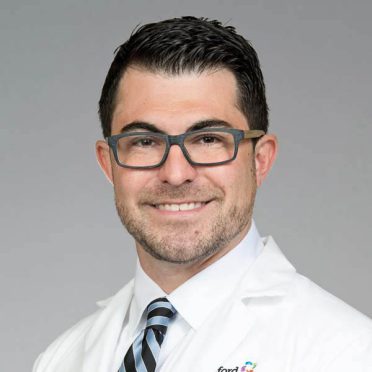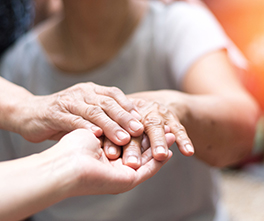A Parkinson’s disease diagnosis no longer means a lifetime of medication as the only treatment option. The experts at Hartford HealthCare’s Ayer Neuroscience Institute Chase Family Movement Disorders Center are taking a multidisciplinary approach when it comes to Parkinson’s treatment.
Hartford HealthCare’s Jocelyn Maminta recently spoke with neurologist and movement disorders specialist Leon Meytin, MD, about exercise and other holistic approaches that provide a better outcome for patients in addition to medication.
“In general, we’re trying to move away from just medication management,” said Dr. Meytin. “We incorporate different types of exercise and now there’s Parkinson’s boxing, Parkinson’s yoga and Parkinson’s dance.”
There’s even ping-pong – PingPongParkinson® was created at the Westchester Table Tennis Center in New York. Soon, patients in Connecticut will be able to take part in PingPongParkinson® at a table tennis club in Greenwich.
“Not only is ping pong fun, but it’s also actually very helpful for those with Parkinson’s,” Dr. Meytin said. “It helps with dexterity, hand-eye coordination, fine motor control and even mental health.”
Other treatment components include physical therapy, acupuncture, massage therapy and nutritional advice.
“If you ask any patient who has Parkinson’s, the number one thing that helps them is this multidisciplinary approach,” he said.
Parkinson’s disease is a movement disorder that generally affects individuals older than 50. It’s caused by a lack of dopamine in the brain, which helps the brain to communicate with muscles.
Common symptoms of Parkinson’s include:
- Slowness in day-to-day tasks.
- A stooped posture.
- Changes in handwriting.
- Changes in mobility.
- Imbalance.
- Tremors.
Dr. Meytin also discussed the role of genetics in Parkinson’s and what it means for family members of those diagnosed with the disease.
“Ten years ago we thought genetics had no role in Parkinson’s,” said Dr. Meytin, who sees patients in Stamford and Bridgeport. “Over the last decade, we’ve identified multiple genes that increase the risk of having Parkinson’s. It’s important to understand that while the risk is increased, it doesn’t guarantee that you will get Parkinson’s.”
While he doesn’t advise the family members of Parkinson’s patients to seek treatment until they develop symptoms, there is one thing they can do just in case.
“Exercise has been shown to slow down the progression of Parkinson’s when caught early,” he explained. “I do encourage family members to increase exercise, so that if they do get Parkinson’s, they are set up for success.”



